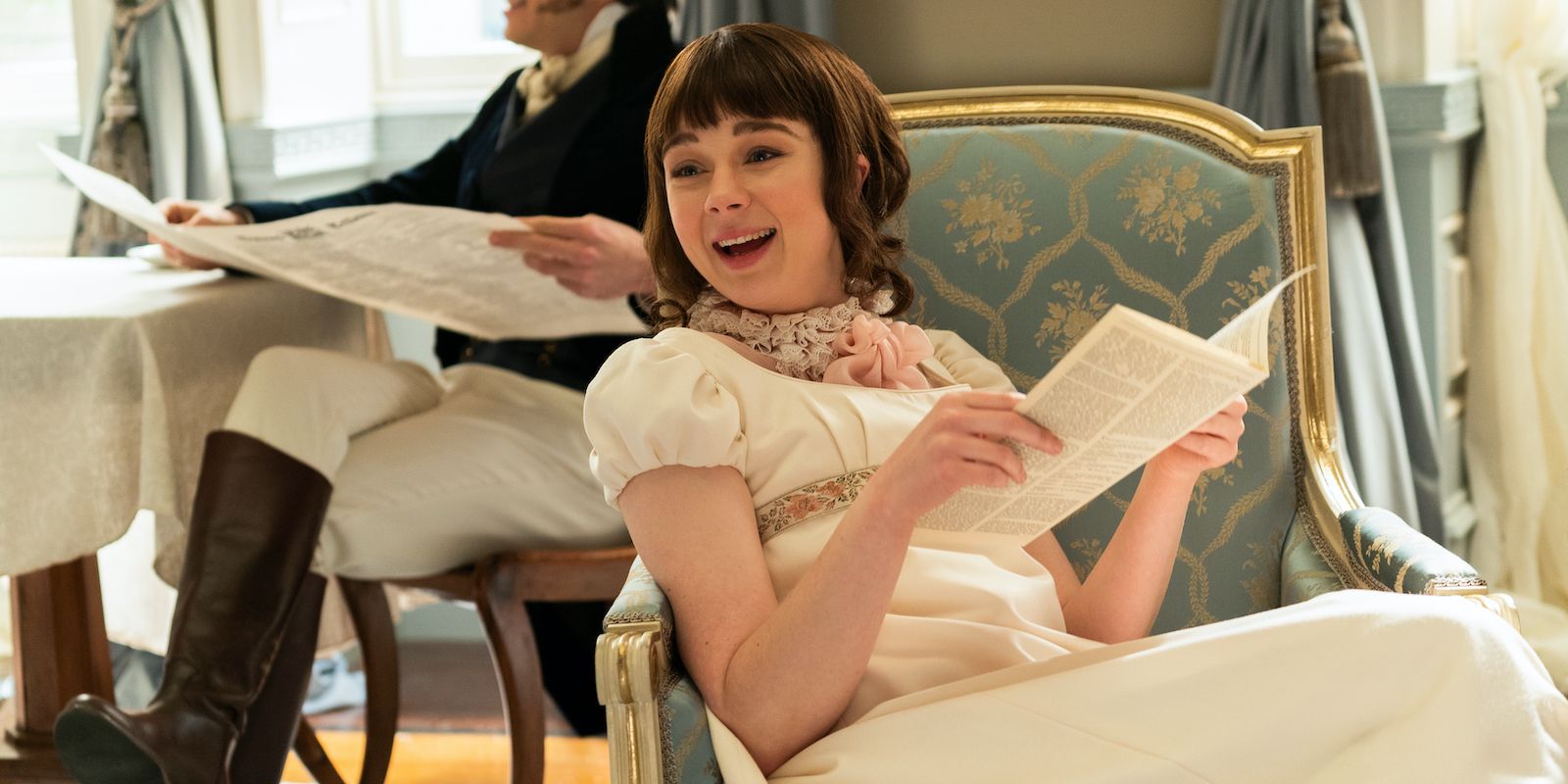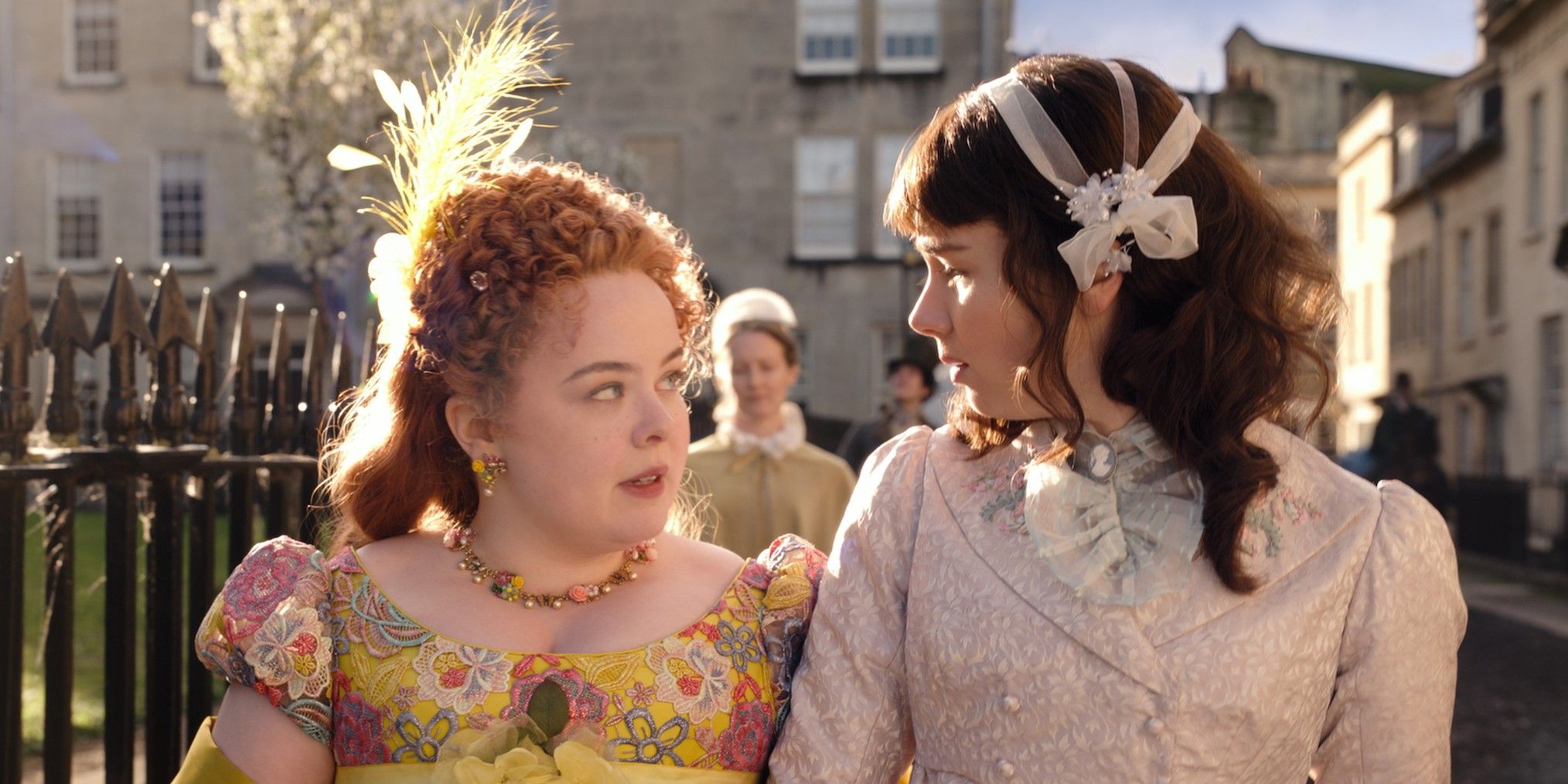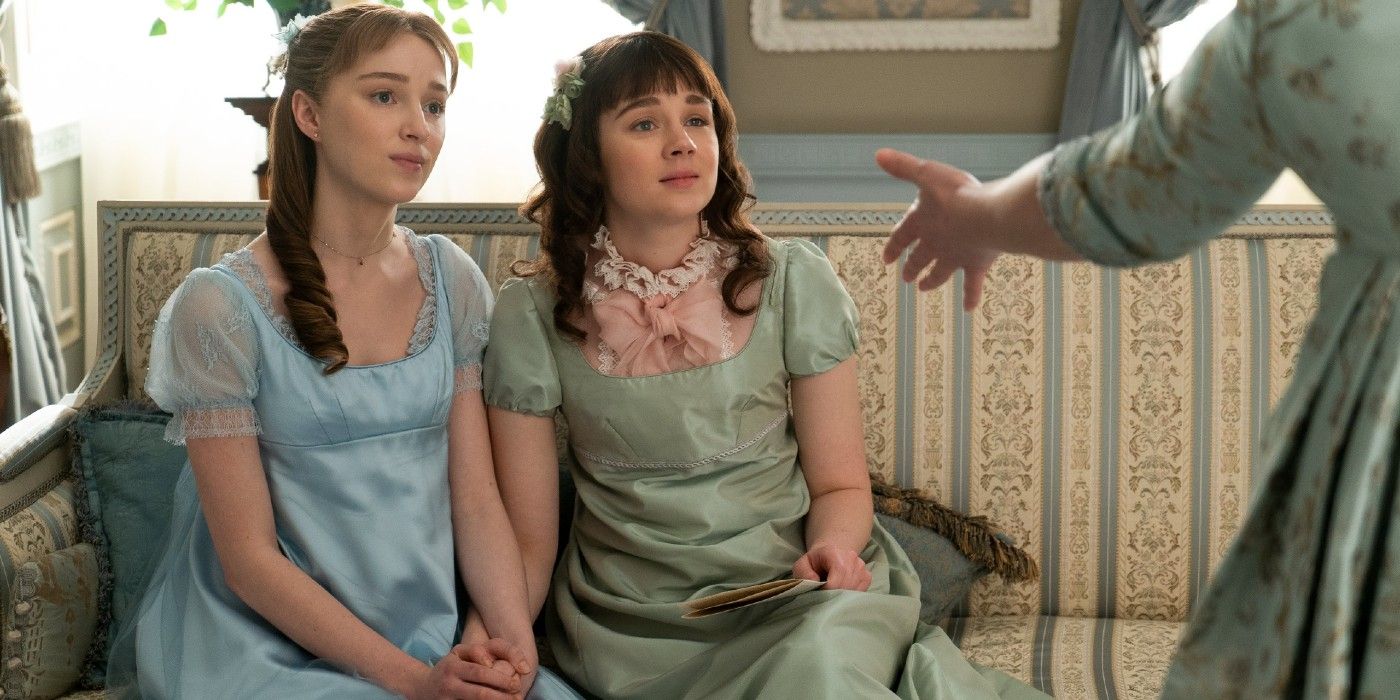Eloise Bridgerton makes quite the name for herself as the feminist, outspoken sister in Bridgerton Season 1. Obviously, as a Bridgerton and a white woman, Eloise does have a level of privilege that not all women are granted in the Regency era. Still, her mindset is admirable, considering she exists in a time when women aren't meant to voice such opinions. Though her dialogue can be heavy-handed at times, her rebellious presence has a cause. Eloise draws bold lines under essentially every female character on Bridgerton trying to make their way in 1813.
Bridgerton debuted on Netflix in 2019 and proved romance novels' adaptation can have mass appeal. The series adapts Julia Quinn's books as an anthology, so each season focuses on a different Bridgerton's romance. Season 1 follows The Duke & I as Daphne Bridgerton falls for Simon Basset, the Duke of Hastings. Season 2 will take a page or two from The Viscount Who Loved Me as Anthony Bridgerton experiences an enemies-to-lovers romance. If Bridgerton should last until Season 5, Eloise's story will be adapted from To Sir Phillip, With Love.
Until then, Bridgerton has to incorporate Eloise into the larger narrative so she doesn't fall to the wayside like Francesca. A good portion of her story exists via her friendship with Penelope Featherington. Eloise's race to uncover Lady Whisteldown's identity adds drama to their relationship. It also underscores the risks women must take to practice hobbies that come more naturally to men. In a conversation with Benedict in the Season 1 episode "The Art of the Swoon," Eloise and her brother speak about that, making it all the more fascinating that Eloise's admiration of Whistledown could lead to the writer's downfall.
It is far more likely that the Whistledown reveal (amongst members of the ton) will follow the books' suit, so the audience is ahead of the characters by some degree. Nevertheless, Eloise's quest furthered by Queen Charlotte adds fuel to the fire of women having to jump through hoops to practice a hobby, unlike, say, Benedict with his art. Subsequently, Eloise is young and not immune to making mistakes, so her perception should evolve to contain more nuance throughout the series. Season 1 sees such happen as Eloise's perspective on Daphne's desires develops as she understands her sister, ending the head vs. heart debate.
For most of Season 1, Eloise prides herself on fostering her mind over her heart, and she looks down upon Daphne's decision to do the opposite in the process. Daphne's desires for a husband and a family don't make her any less of a woman trying to make her way. She carries the weight of her family's progression and security on her shoulders. Not to mention, as the Duchess of Hastings, Daphne has more influence than she likely ever imagined for herself. It's touching to see Eloise gradually come around to her oldest sister's wishes through various heart-to-hearts, like the one when they discuss their fears of childbirth.
Eloise learns there is no correct answer to women advocating for their hearts or minds because they should not be limited to one over the other. Women should have both, but that is not possible within the Regency era -- not directly, that is. Amongst other reasons, that's why Penelope finds her voice and some power through gossip as Lady Whistledown. It's reminiscent of Violet Bridgerton utilizing gossip (something women are often criticized for) as a way to protect Daphne from Lord Berbrooke. The women of Bridgerton have to be creative and sometimes selfish to carve out space for themselves.
For example, the lies Marina Thompson tells to Colin Bridgerton are selfish and inconsiderate to his heart and mind, but Marina only has so many options to ensure a "good" life for her and her unborn child. It would not be fair to ignore her motives in the context of 1813. Similarly, Siena Rosso and Genevieve Delacroix are staunch advocates of their intellectual and romantic freedom despite the way society looks down on self-made women who live lifestyles like theirs. Ultimately, Eloise Bridgerton's actions and words give Bridgerton a lens to examine feminism and womanhood with more nuance, even if that means catching her on her biases sometimes.



